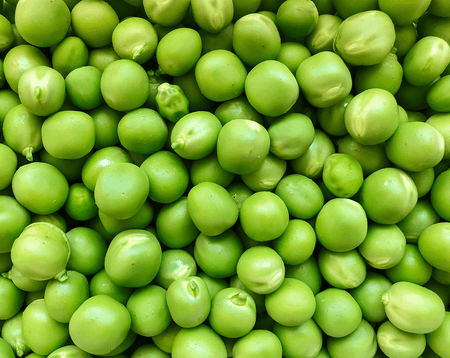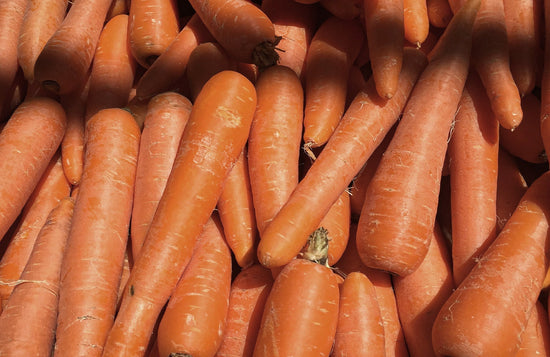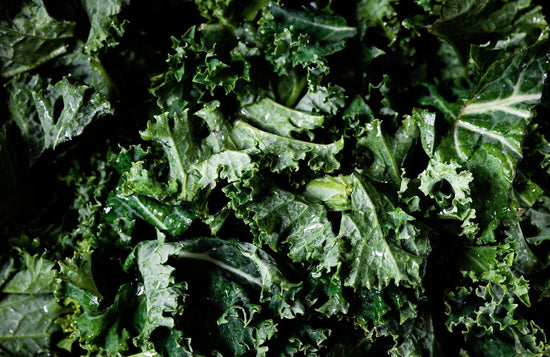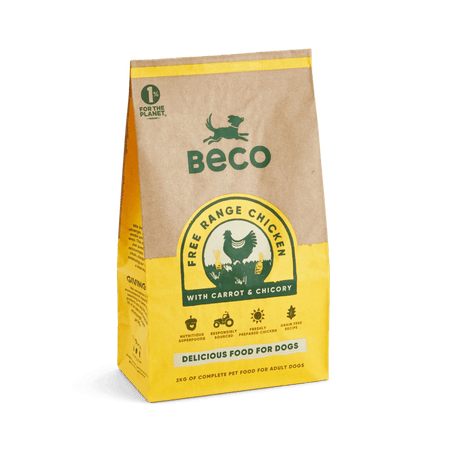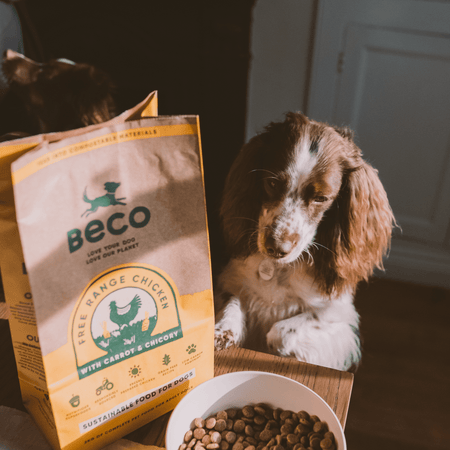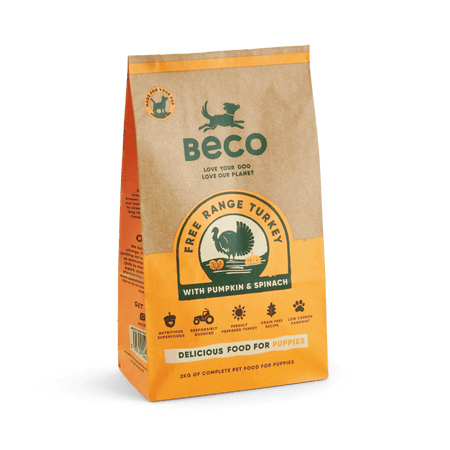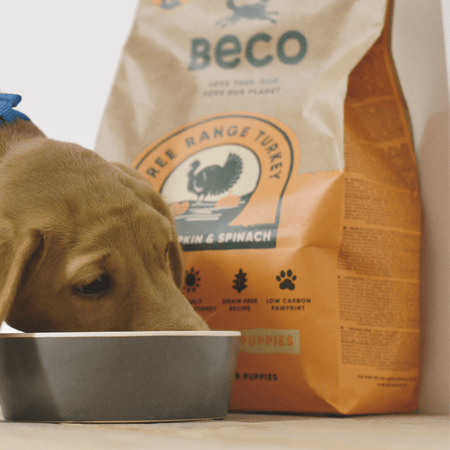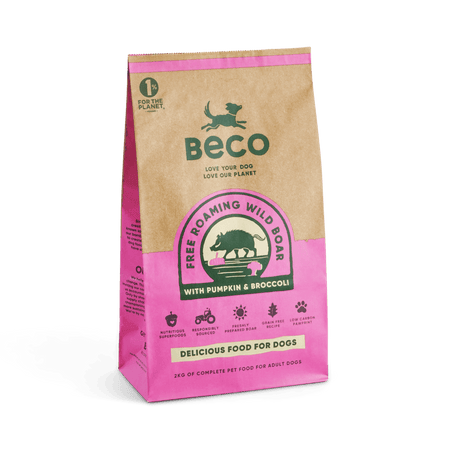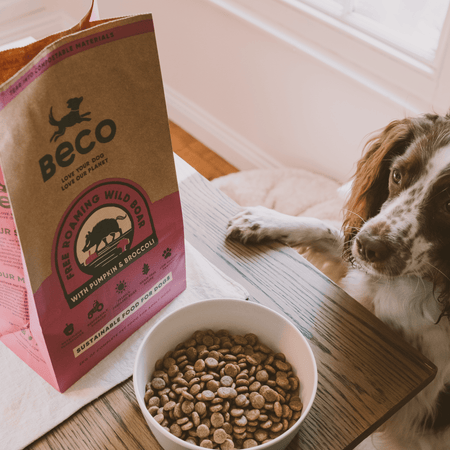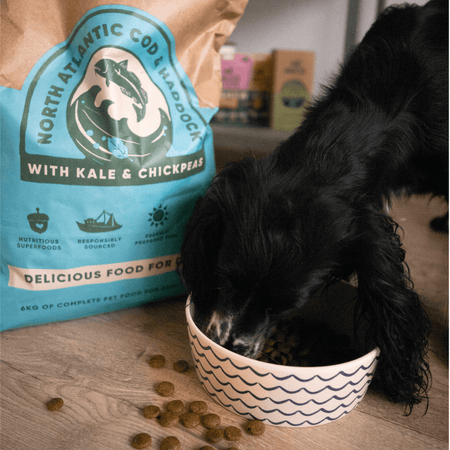Dogs can eat peas, yes. Peas are one of nature’s finest vegetables, and there’s no reason why your pup shouldn’t enjoy them in just the same way that we humans do. These little green balls of flavour are best enjoyed in the springtime when they’re in season, and the fresher the better.
Packed with healthy nutrients, peas make both the perfect canine standalone treat, as well as being a great ingredient within dog food. Bursting with natural sweetness, your dog is bound to love a sprinkling of peas on top of its dinner. First, though, let’s look in a bit more detail at just what kinds of benefits dogs can expect to get from adding peas into their diet.
What vitamins and minerals are in peas?
Peas contain a wealth of different vitamins and minerals known to be beneficial for a dog’s health. These include the following:
Vitamin C
Vitamin C is amongst the most important antioxidants - chemicals that prevent the potentially damaging ‘oxidation’ reaction from occurring - and although dogs are able to synthesize vitamin C, themselves (to an extent, at least), additional dietary supplementation is also usually beneficial. Just as in humans, vitamin C also helps boost a dog’s immune system, helping their bodies better stave off harmful pathogens.
Vitamin E
Consuming sufficient quantities of vitamin E helps dogs with their cardiac health, liver functioning, fat metabolization and with the building of cell membranes. Vitamin E is also a key antioxidative vitamin, just like vitamin C!
Zinc
Onto the minerals, and first up it’s Zinc. This commonly found mineral helps in many areas of the body (both human and canine) including:
- Healthy fur and skin
- Immune functioning
- Normal sexual functioning
Magnesium
Magnesium is another important mineral for dogs; at a cellular level, it helps facilitate energy transfer throughout the body. A lack of magnesium, therefore, can lead to heart issues, lethargy and trouble with walking/movement. Fortunately, peas are naturally high in magnesium, coming in at a plentiful 33mg per 100g. Adding peas into your dog’s diet will ensure their magnesium intake is always where it needs to be.
Potassium
If ever you’ve exercised hard, then you might well have had one of those sports drinks with ‘electrolytes’ in - potassium is one such electrolyte. Electrolytes are crucial in preventing dehydration, and in regulating the amount of water in a dog’s body, and more importantly, regulating the balance of fluids in their body.
Other nutritional benefits
Alongside the many vitamins and minerals found in peas, they’re also a great source of several other key nutrients, such as protein and dietary fibre. In fact, peas are one of the most readily available protein-rich plant sources you can find. Protein can be thought of as life’s ‘building blocks’ - without enough protein, animals (dogs included) aren’t able to sustain muscle mass or properly grow. In other words, it’s essential. Getting enough protein into your dog’s diet is crucial in keeping them fit, strong and healthy.
Fibre is important (in appropriate quantities) to dogs as it helps aid with digestion; it provides ‘bulk’ that keeps dogs regular, and helps better regulate their overall gastrointestinal health. A lack of fibre, therefore, can lead to problems such as constipation on one end of the spectrum, and diarrhoea on the other. It’s also thought that fibre is useful in tackling high cholesterol in dogs.
What are the best ways to feed peas to your dog?
The plainer and fresher the better! Peas straight from the pod are probably the best way to feed your dog peas, as canned alternatives tend to be high in sodium (salt) to help preserve them longer.
Too much sodium in a diet can lead to high blood pressure, so it’s important to keep on top of this, wherever possible. If you are going to cook your peas, then stick to a plain and simple steaming, as cooking them in other ingredients, like oil or butter, can upset your dog’s stomach.
Can my dog eat peas everyday?
As with anything in life, too much of anything tends not to be a good thing. You should feed your dog peas in moderation, and only as part of a healthy, balanced diet. A good way to feed your dog peas is as a constituent part of a dog food, such as this one from our own range!
Why not treat your dog with our delicious free range chicken dog food, for instance, which features peas as one of its ingredients, alongside many other natural ingredients, like chickpea, carrot and kale.
Can peas upset a dogs stomach?
It depends. Most upset stomach issues a dog will have tend to stem from the way in which the peas have been prepared, rather than necessarily the peas themselves. That said, peas do contain a naturally-occurring chemical called purine which some dogs find difficult to digest.
Because of this, it’s always worth introducing peas into your dog’s diet in small amounts first if they’ve not had them previously. So, yes, peas can upset a dog’s stomach, although it very much depends on the dog in question, and as to whether they’ve had them before.
Can dogs eat pea pods?
Dogs can eat pea pods, however given they’re size and long shape, they might be a choking hazard for some smaller breeds. Because of this, if you’re going to feed your dog pea pods, make sure to cut them up into smaller, bite-sized pieces, first.
Final thoughts
Peas are a great source of important nutrients for dogs, and are tasty to boot. So, if you’re looking to add a healthy little boost to your pup’s diet, then peas are a pretty good place to start! If you want to find out more about our healthy dog food range (which features lots of pea-containing foods) then click here!
